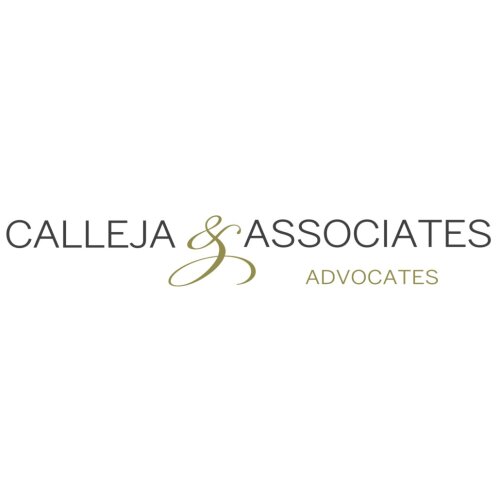Best Creditor Lawyers in Malta
Share your needs with us, get contacted by law firms.
Free. Takes 2 min.
Or refine your search by selecting a city:
List of the best lawyers in Malta
About Creditor Law in Malta
Creditor law in Malta encompasses the legal framework and processes that allow creditors to seek repayments from debtors who have defaulted on their obligations. This area of law includes various mechanisms such as insolvency proceedings, debt recovery actions, and enforcement of judgments. Given Malta's robust financial regulatory environment, creditor laws are designed to protect the interests of both creditors and debtors, ensuring transparency and fairness in financial transactions.
Why You May Need a Lawyer
There are several scenarios where legal assistance might be necessary in dealing with creditor issues. You may require a lawyer if you need to navigate complex debt recovery procedures, initiate insolvency proceedings against a debtor, or defend yourself from aggressive creditor actions. Legal expertise can also be crucial in negotiating repayment terms, interpreting court orders, or handling cross-border creditor issues, as Malta's role as a financial hub often involves international transactions.
Local Laws Overview
Maltese creditor laws are influenced by both local legislation and European Union directives, ensuring they align with international standards. Key aspects include the Companies Act, which regulates insolvency proceedings and restructuring for businesses, and the Code of Organisation and Civil Procedure, which governs debt recovery procedures. Malta also adheres to EU regulations like the European Enforcement Order, facilitating cross-border debt recovery within the EU. Credit agencies in Malta are regulated to ensure ethical practices and protect debtors from any unlawful harassment.
Frequently Asked Questions
1. What is the first step in recovering a debt in Malta?
The first step typically involves sending a formal demand letter to the debtor, insisting on the payment of the outstanding debt.
2. Can a creditor initiate bankruptcy proceedings against a debtor?
Yes, a creditor can file for bankruptcy proceedings if the debtor is unable to meet their financial obligations. This often requires a court application.
3. How do insolvency proceedings work in Malta?
Insolvency proceedings involve the appointment of a liquidator who will oversee the distribution of the debtor's assets to satisfy creditor claims.
4. Are cross-border debt recoveries possible in Malta?
Yes, Malta follows EU regulations allowing for cross-border debt recovery, including the European Enforcement Order which simplifies the process.
5. How are creditors protected under Maltese law?
Creditors are protected through various legal mechanisms that ensure they have the right to claim debts through court orders and enforcement actions.
6. What is the role of a legal expert in creditor disputes?
A legal expert can provide advice on the best course of action, represent you in court, and help negotiate settlements with debtors.
7. What happens if a debtor disputes a debt claim?
If a debtor disputes a debt claim, the case may proceed to court where evidence from both parties will be examined to resolve the issue.
8. Can interest be charged on unpaid debts?
Yes, interest can typically be charged on overdue debts, but it is subject to the terms agreed upon in the contract and local legislation.
9. How long does the debt recovery process take?
The timeline for debt recovery can vary significantly depending on the complexity of the case and whether the debtor disputes the claim.
10. What are my options if a debtor becomes insolvent?
Options include participating in the insolvency proceedings to claim your share from the remaining assets or considering out-of-court settlements.
Additional Resources
For those seeking more information or assistance, consider contacting the Malta Financial Services Authority (MFSA), the Chamber of Advocates, or licensed debt recovery services in Malta. Additionally, government websites can provide useful insights into the latest legal frameworks and creditor rights in Malta.
Next Steps
If you require legal assistance in creditor matters, it is advisable to consult with a lawyer specializing in creditor law. They can offer guidance on your rights and obligations, help draft necessary legal documents, and represent you in any legal proceedings. Start by gathering all relevant documents pertaining to your case and schedule a consultation to discuss possible legal strategies and outcomes.
Lawzana helps you find the best lawyers and law firms in Malta through a curated and pre-screened list of qualified legal professionals. Our platform offers rankings and detailed profiles of attorneys and law firms, allowing you to compare based on practice areas, including Creditor, experience, and client feedback.
Each profile includes a description of the firm's areas of practice, client reviews, team members and partners, year of establishment, spoken languages, office locations, contact information, social media presence, and any published articles or resources. Most firms on our platform speak English and are experienced in both local and international legal matters.
Get a quote from top-rated law firms in Malta — quickly, securely, and without unnecessary hassle.
Disclaimer:
The information provided on this page is for general informational purposes only and does not constitute legal advice. While we strive to ensure the accuracy and relevance of the content, legal information may change over time, and interpretations of the law can vary. You should always consult with a qualified legal professional for advice specific to your situation.
We disclaim all liability for actions taken or not taken based on the content of this page. If you believe any information is incorrect or outdated, please contact us, and we will review and update it where appropriate.
Browse creditor law firms by city in Malta
Refine your search by selecting a city.









